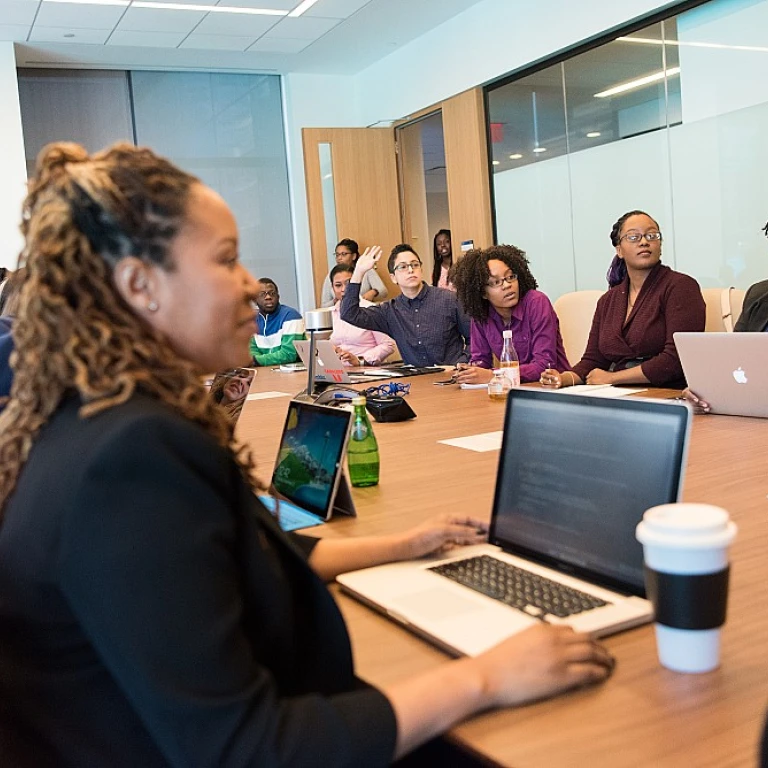What Is Candidate Experience?
Defining Candidate Experience
The concept of candidate experience encapsulates the entire journey a candidate embarks on during the recruitment process. It's not merely about job offers or interviews; it's a comprehensive cycle that includes every interaction candidates have with an organization. From the initial job posting to the final hiring decision, each touchpoint plays a crucial role in shaping the candidate's perception of your brand.
Candidate experience begins with the first exposure to a company, often through job advertisements or employer branding efforts. It encompasses the application process, communication with recruiters, interview interactions, and even the onboarding experience once hired. This intricate web of moments determines how candidates feel about the potential employer, influencing their engagement and decision-making. It's important to note that candidate experience doesn't just impact those who secure a position. Negative experiences can lead to dissatisfied candidates who may share their perceptions with others, potentially harming the organization's reputation.
Understanding the importance of creating a seamless and positive journey for candidates is essential for businesses aiming to attract top talent. As the recruitment landscape becomes increasingly competitive, an effective candidate experience can set your organization apart. For further insights and strategies on enhancing this aspect, explore how to improve candidate experience
here.
Why Candidate Experience Matters
The Importance of a Positive Candidate Experience
In the increasingly competitive job market, the concept of candidate experience has become more crucial than ever for organizations eager to attract top talent. But why should companies prioritize this aspect of their recruitment process?
First and foremost, candidate experience has a direct impact on a company's reputation. In today’s digital age, candidates are quick to share their experiences, whether positive or negative, on social media and employer review platforms. A smooth and professional recruitment process can strengthen your employer brand, while a negative experience can quickly deter future applicants and tarnish your brand image.
Moreover, an excellent candidate experience can reduce the time and cost it takes to fill a position. Candidates who feel valued and respected are more likely to enthusiastically accept job offers, which lessens the risk of losing them to competitors. Additionally, a well-thought-out process helps streamline recruitment efforts, effectively handling applications and minimizing redundancy.
On the other hand, poor candidate experience can discourage qualified individuals from joining your organization, causing talent loss and potentially affecting your company's long-term success. According to
best practices in mastering recruitment, treating all candidates with respect and maintaining clear communication throughout the hiring journey are paramount.
Ultimately, a positive candidate experience not only helps in attracting the right talent but also contributes to creating a workforce that is engaged, committed, and in alignment with your organizational goals. After understanding its significance, let's delve into the steps of the recruitment process where candidate experience can be refined and optimized.
Steps in the Recruitment Process
{
\"h3\": \"Unraveling the Recruitment Journey\",
\"p1\": \"The recruitment journey is a multifaceted process composed of several pivotal steps, each significantly impacting the candidate's perception of a company. Understanding these stages is essential for creating a seamless and positive candidate experience, as previously highlighted. Each phase offers unique opportunities to engage with candidates and positively influence their journey.\",
\"h3_2\": \"Key Phases of the Recruitment Process\",
\"p2\": \"To effectively enhance the candidate experience, businesses should focus on optimizing the following key phases of the recruitment process: application, screening, interviewing, offering, and onboarding. Each of these phases presents chances to either elevate or mar a candidate's impression and desire to join the organization.\",
\"p2_1\": \"During the application phase, ease and accessibility should be a priority. An arduous application process can deter qualified candidates from proceeding any further. It’s important to streamline this stage with user-friendly interfaces and clear instructions, ensuring candidates feel supported from the beginning.\",
\"p2_2\": \"Screening is another critical phase where efficient communication and transparency regarding timelines and next steps can enhance the candidate’s experience. By keeping candidates informed and respecting their time, businesses not only improve the recruitment process but also set the tone for mutual respect and professionalism.\",
\"p2_3\": \"The interview phase offers substantial room for engagement. Providing timely feedback and conducting interviews that are conversational rather than interrogative helps in building a strong rapport with candidates. Personalizing interviews to align with candidates' skills and career aspirations can significantly bolster their impression of the company.\",
\"p2_4\": \"Upon reaching the offer stage, clarity and promptness are key. Candidates should receive their offers without unnecessary delays, accompanied by comprehensive information regarding role expectations, growth opportunities, and any other queries they might have. Immediate and courteous communication can make or break acceptance decisions.\",
\"p2_5\": \"Finally, onboarding transitions the candidate from potential employee to team member. A welcoming onboarding process that provides resources, support, and integration into the corporate culture is instrumental in affirming the candidate’s decision to join, enhancing satisfaction, and reducing early turnover.\",
\"p3\": \"For companies looking to assess and refine these processes, developing a robust candidate experience survey is fundamental. This tool enables organizations to gather valuable insights into each recruitment phase and identify areas for improvement. For more information about constructing such a survey, consider visiting
this comprehensive guide.\"
}
Creating a Positive Candidate Experience
Fostering a Memorable Application Journey
Creating a positive candidate experience is crucial in ensuring that prospective employees not only become enthusiastic about the role but also become ambassadors for your company, regardless of the outcome of their application. This transformative process involves several key elements that need attention to foster a memorable application journey.
One of the primary aspects to consider is clear and transparent communication. Candidates appreciate being informed at every step of their journey, whether it's an acknowledgment of their application or updates on their interview process. This openness in communication helps to build trust and ensures candidates feel valued.
Additionally, personalizing the experience can make a significant difference. Ditch the generic responses and attempt to connect on a personal level. Acknowledge specific skills or accomplishments from the candidate's resume when reaching out or providing feedback. This small yet meaningful gesture can transform a transactional interaction into a more engaging experience.
Streamlining the application process is another essential component. A convoluted and lengthy application can be off-putting. Ensure that the process is as efficient and user-friendly as possible, enabling candidates to navigate it with ease.
Moreover, creating a respectful and understanding environment during interviews and assessments is vital. Candidates should feel like they're entering an opportunity, rather than a stressful interrogation. Interviewers should be trained to conduct conversations that are inviting and encouraging, allowing candidates to express themselves freely and authentically.
Lastly, comprehensive feedback should be provided regardless of the outcome. Constructive feedback can be an invaluable tool for candidates to improve and learn from their experience. It also contributes to a positive overall experience and leaves a lasting impression on the candidates. Remember—today's candidate could be tomorrow's client, advocate, or future applicant.
By focusing on these strategic points, companies can cultivate an environment that not only attracts top talent but retains a positive reputation in the employment market. Armed with this understanding, organizations can leverage their recruitment process to enhance not just their hiring outcomes, but also their brand perception in the broader community.
Common Pitfalls Leading to a Bad Candidate Experience
Recognizing the Pitfalls in Candidate Experience
Ensuring a smooth candidate experience is critical for any organization, yet missteps can occur, leading to a negative impression and even a tarnished employer brand. Let's delve into some common pitfalls that could derail your recruitment process.
Miscommunication and Lack of Transparency: Candidates crave transparency. From ambiguous job descriptions to unclear communication regarding interview timelines and outcomes, lack of clarity can lead to frustration. As explored earlier, a seamless flow of information, timely updates, and clear expectations can make a significant difference. It's crucial to set realistic timelines and communicate any changes promptly.
Complex or Lengthy Application Processes: An overly complicated application procedure can deter even the most enthusiastic candidates. When candidates are required to navigate through a cumbersome process, it may signal inefficiency and lack of consideration for applicants' time. Streamlining the application steps, ensuring mobile compatibility, and offering user-friendly platforms are key solutions.
Poor Interview Experience: The interview stage is often a point where candidate experiences falter. Whether it's because of unprofessional behavior from interviewers or lack of structured interview processes, candidates can be left with a negative perception. Training interviewers to conduct interviews professionally and ensuring they're familiar with the role and expectations can enhance the candidate's experience.
Ignoring Feedback: Candidates often provide feedback, either solicited or unsolicited, about their experience throughout the recruitment process. Organizations that fail to acknowledge or act on this feedback miss valuable opportunities for improvement. Constructive feedback loops can foster a culture of continuous improvement, illustrating to candidates that their opinions are valued.
Not Providing Closure: Being left in the dark after investing time and effort in the application process can be disheartening for candidates. Whether it’s a positive or negative outcome, providing timely and considerate feedback is crucial. This considers the candidate’s perspective and upholds the organization’s reputation.
Understanding these pitfalls can prevent your organization from falling into the typical traps that degrade candidate experience. Implementing proactive strategies to avoid these mistakes will lead to a more engaging and respectful recruitment process.
Improving Candidate Experience: Real-World Examples
Real-World Examples of Improving Candidate Experience
Improving candidate experience is more than just theoretical talk; it's a strategy that successful companies implement to enhance their recruitment process and reputation. By looking at real-world examples, we can learn invaluable lessons that transform the theoretical insights from previous sections into practical applications.
One exemplary case is a leading tech company that overhauled its recruitment process to ensure a seamless, candidate-friendly experience. They implemented simplified online application forms, reducing the time and effort required to apply. This was combined with a clear communication strategy that kept candidates informed at every stage of the process, similar to the suggestions in creating a positive candidate experience from earlier discussions.
Additionally, a renowned retail giant leveraged technology to innovate their recruitment process. They incorporated AI-driven chatbots to provide candidates with prompt responses to common queries, thereby maintaining engagement and reducing frustration—a key component in avoiding common pitfalls leading to a bad candidate experience.
Another example comes from a mid-sized financial firm that focused on the feedback loop. By actively soliciting candidate feedback post-interview and making adjustments based on this input, they improved their candidate satisfaction rates significantly. This continuous feedback mechanism is vital for refining the process to retain top talent and improve overall organizational performance, as discussed in previous sections.
These examples illustrate how companies across industries can adopt strategies tailored to their unique needs, addressing specific challenges in their recruitment processes. By listening to candidates, simplifying procedures, and embracing technology, businesses can transform candidate experience from a potential pitfall into a competitive advantage.












